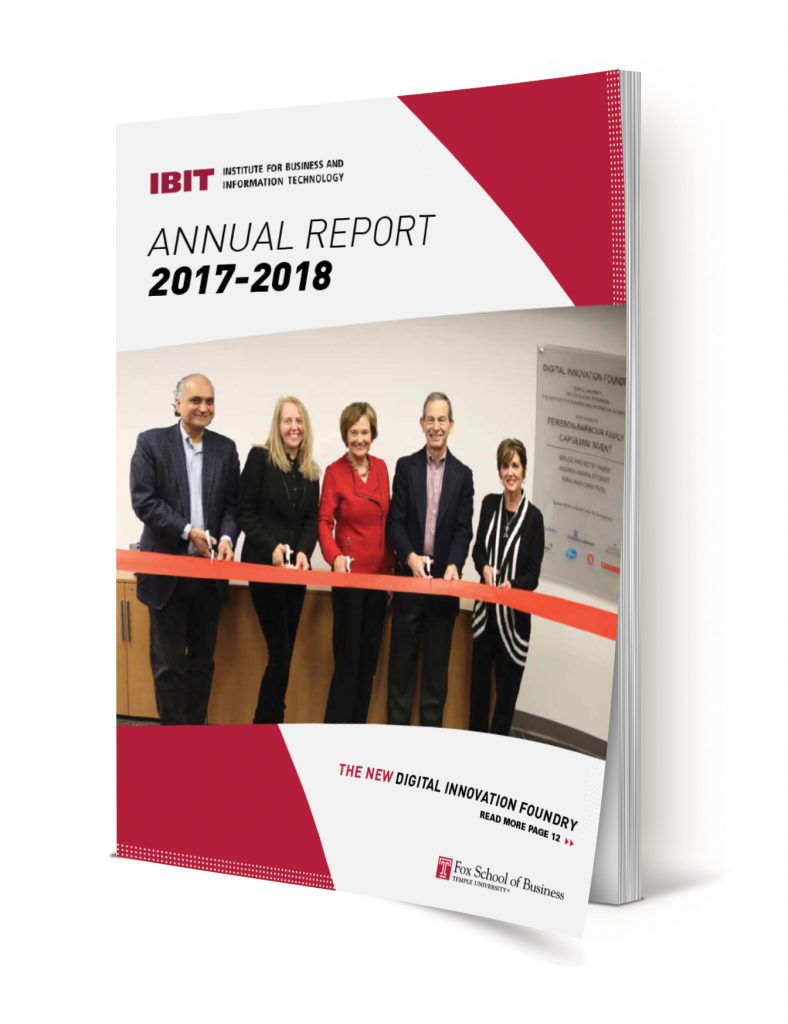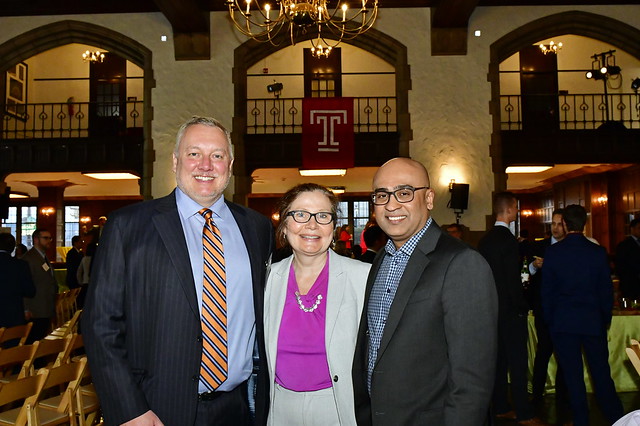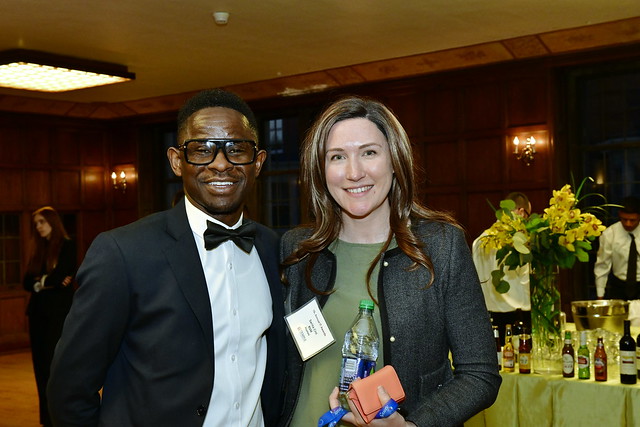 Dear colleagues,
Dear colleagues,
It is my pleasure to present the 2017-18 annual report of the Institute for Business and Information Technology (IBIT), Temple University.
The IBIT partnership with nationally recognized member firms and the IT advisory board is quickly becoming the standard for industry-academic engagement. Please read the report to learn more.
Sincerely,
Munir Mandviwalla
Executive Director

 Temple University has a new way to engage students, faculty, and industry in generating digital innovation: the
Temple University has a new way to engage students, faculty, and industry in generating digital innovation: the 























